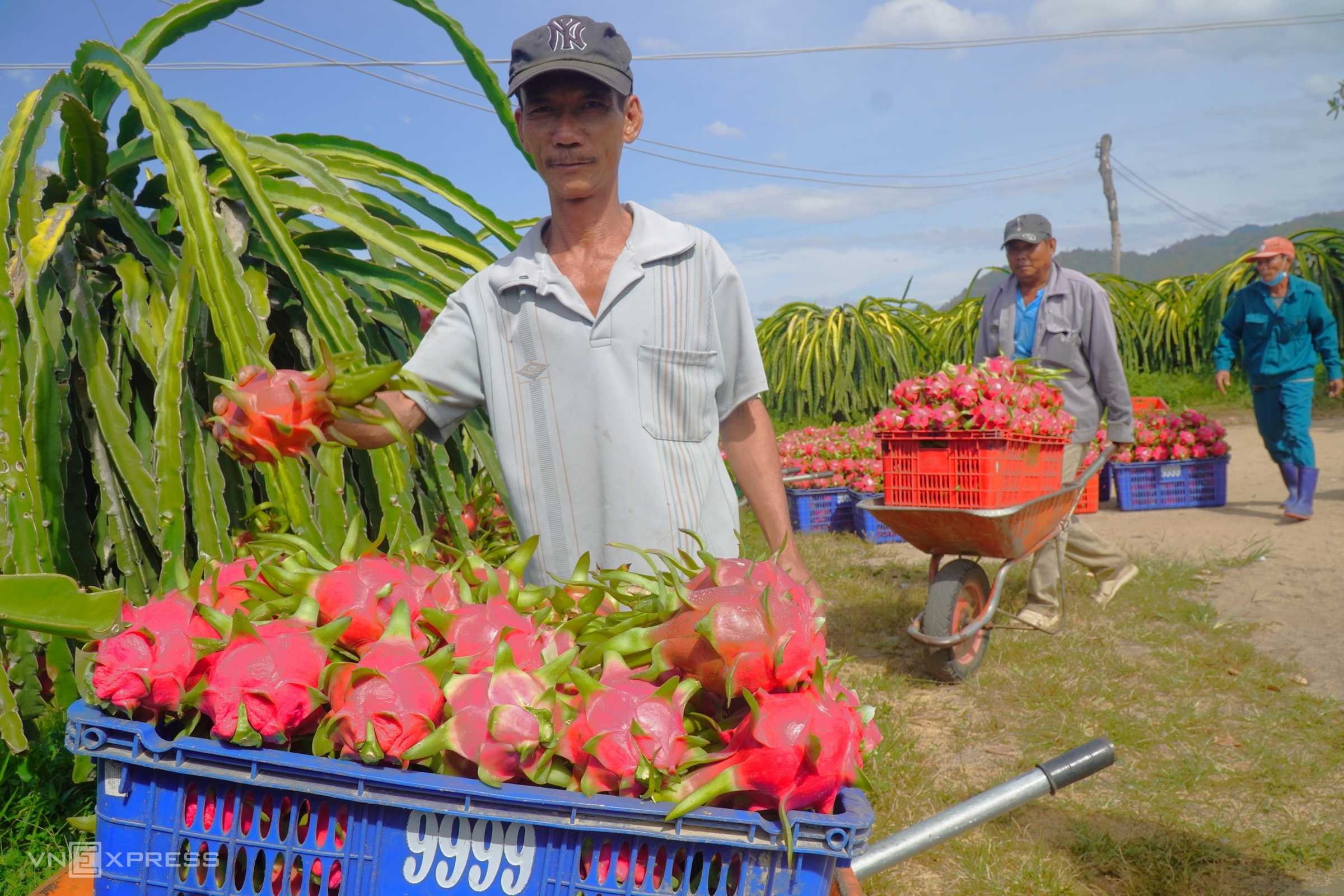This sharp decline resulted in dragon fruit exports for the first 6 months of the year reaching only 294 million USD, a 1.5% decrease compared to the same period in 2024.
All of Vietnam's top 10 dragon fruit import markets reduced their purchases in June. China, the largest market, spent only 15 million USD, a 60% decrease compared to the previous month. Other markets like India, the US, and the UAE decreased their purchases by 48-57%, while the remaining markets saw decreases of 2-40%.
Huynh Canh, Chairman of the Binh Thuan Dragon Fruit Association, said the sharp decrease in June exports was due to a significant reduction in light-grown dragon fruit, coupled with a less abundant natural harvest, leading to an overall drop in export volume. Additionally, the May-June period is the transition season between crops, with unpredictable weather causing fungal and other diseases, resulting in many shipments not meeting quality standards.
 |
Pham Van Dung harvesting dragon fruit in his orchard, My Thanh Commune, Ham Thuan Nam District (Binh Thuan). Photo: Viet Quoc |
Pham Van Dung harvesting dragon fruit in his orchard, My Thanh Commune, Ham Thuan Nam District (Binh Thuan). Photo: Viet Quoc
Sharing the same view, Dang Phuc Nguyen, General Secretary of the Vietnam Fruit and Vegetable Association, explained that domestic produce from China, India, and South American countries is currently in its harvest season, making it difficult for Vietnamese dragon fruit to compete on price. Moreover, the change in authority for issuing food safety certificates for the EU market, effective from July 1st, has also created difficulties for exports to this region.
Specifically, according to Circular 12, effective from 1/7, the authority to issue food safety certificates for shipments to the EU has been transferred from the Plant Protection Department to provincial People's Committees (UBND).
The circular stipulates that within one working day of receiving a complete and valid application, the designated specialized agency must review the documents. On the next working day, the provincial People's Committee Chairman issues the inspection results. However, a representative of an export company reported that the transfer of authority caused a roughly 10-day interruption in the certification process, leading to many dragon fruit shipments being stored in cold storage, awaiting permits. This poses difficulties given the EU's strict quarantine requirements and tight delivery schedules.
Huynh Canh also reported that as of 25/7, over 100 tons of dragon fruit had spoiled due to prolonged storage, while another 50-70 tons were still awaiting certification. This was because no provincial agency had yet stepped forward to certify the food safety of shipments to the EU.
From 26/7, the certification process began to be resolved, easing the backlog, but many businesses still suffered losses.
The Prime Minister recently requested relevant agencies to address the bottlenecks in issuing food safety certificates, especially for the thousands of tons of dragon fruit and pepper stuck in cold storage, unable to be exported to the EU.
The Prime Minister assigned provincial People's Committees to coordinate with ministries and sectors to resolve these difficulties for businesses. Comprehensive solutions need to be implemented to ensure timely customs clearance for agricultural products, limiting damage to Vietnam's export reputation and capacity.
Thi Ha












